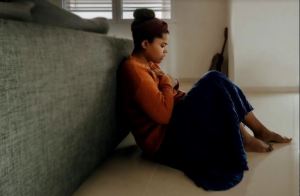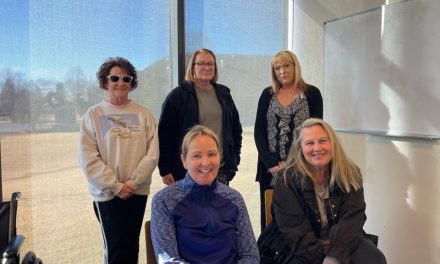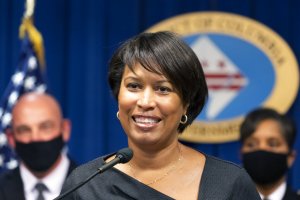

According to the CDC’s most recent Household Pulse Survey, 30% of Black respondents reported experiencing symptoms of anxiety disorder, compared to 25% of White respondents. (Courtesy photo)
By Maya Pottiger
Special to the AFRO
Pandemic fatigue is hitting harder this time around. After a few weeks where it seemed like the United States was finally turning the corner on the pandemic, the delta variant has taken us a few steps back.
Getting a taste of our old mask-free lives and worry-free gatherings has made the transition back to indoor masking and social distancing more difficult.
According to the CDC’s most recent Household Pulse Survey, 30% of Black respondents reported experiencing symptoms of anxiety disorder, which is the highest percentage since mid-March 2021, when it was at 32%. White respondents were at 25%, which is the lowest since the end of April.
“Emotional exhaustion is this sense of overwhelmingness. Overwhelmed to the point where you feel like you don’t have the capacity to deal anymore,” Vaile Wright, a senior director of health care innovation at the American Psychological Association, told USA Today. “It’s physical tiredness. It’s mental tiredness. It’s difficulty concentrating. It’s all the things that we experience when we’re just at our capacity.”
Suicide rates are rising in the Black community, while they remain steady or are decreasing among other races, according to the American Foundation for Suicide Prevention. In 2019, the most recent national suicide data, the rate of suicides in the Black community was 7.4, the highest it’s ever been and up from 6.96 the previous year.
“At Howard University Hospital in one day, I had back-to-back suicide attempts,” Danielle Hairston, the psychiatry residency training director at Howard University College of Medicine, told NBC News. “That day I had three suicides — one a young mother, two males, all between 20 and 50 years old. I had never seen so many suicide attempts in such a short period.”
During the first weeks of lockdown in 2020, suicide among Black people in Maryland “nearly doubled while decreasing substantially among white residents,” Michael Martin said in an April NPR segment.
Dr. Paul Nestadt, an assistant professor of psychiatry at Johns Hopkins University, spoke with Martin during the interview. He theorized that Black Marylanders were hit harder by the pandemic than their white neighbors, both economically and in terms of access to health.
“Having the ability to reach out and get help when you need help is really important,” Nestadt said in the interview. “And that’s something that we can prioritize and make sure there are resources available for everyone that needs psychiatric help when needed.”
It is important to note that the Black and Asian populations have the lowest suicide rates among all ethnic groups.
In a June 2020 CDC survey looking specifically at mental health related to the pandemic, nearly 11% of all respondents said they have seriously considered suicide in the last 30 days. However, 15% of Black respondents said they had seriously considered it compared to 8% of white respondents.

The June 2020 survey also showed 30% of Black respondents experienced anxiety or depressive disorder, and 30% experienced trauma- or stressor-related disorders (TSRDs).
Black therapists have been in high demand, according to NBC News.
“When you are exhausted and seeking help and maybe you waited until a crisis, you don’t want to take time to find out whether a therapist who is white will understand you,” Laura Morse, a professional counselor in Atlanta, told NBC News. “People came wanting and needing immediate connections.”
This article was originally published on WordinBlack.com.
Help us Continue to tell OUR Story and join the AFRO family as a member – subscribers are now members! Join here!
The post The pandemic takes a toll on mental health in the Black community appeared first on AFRO American Newspapers .











